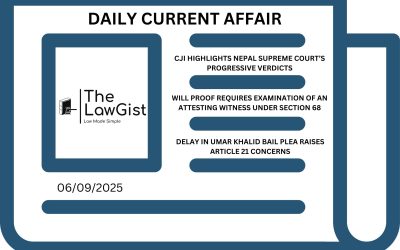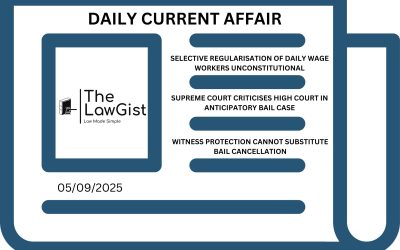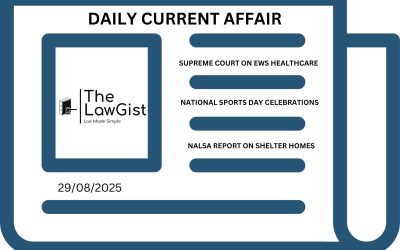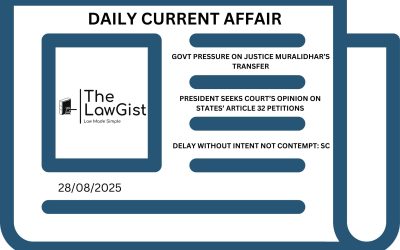
The Supreme Court delivers landmark judgments on disability rights, interim bail in the Chhattisgarh coal scam, and social media content blocking notice requirements.
DAILY CURRENT AFFAIRS (3 MARCH 2025)
SUPREME COURT RULES AGAINST DISCRIMINATION OF PERSONS WITH DISABILITIES IN JUDICIAL RECRUITMENT
Case Name: IN RE RECRUITMENT OF VISUALLY IMPAIRED IN JUDICIAL SERVICES v. THE REGISTRAR GENERAL THE HIGH COURT OF MADHYA PRADESH
A Supreme Court decision states that individuals with disabilities cannot be disqualified from consideration for judicial service recruitment. The Apex Court stuck down the Madhya Pradesh Judicial Service rule, which bars candidates with visual impairments from the judicial service. The Court also mandated affirmative actions for inclusivity by referring to Rights of Persons with Disabilities At, 2016.
Legal Provision: Rights of Persons with Disabilities Act, 2016.
Source: Supreme Court of India
DAILY CURRENT AFFAIRS (3 MARCH 2025)
SUPREME COURT GRANTS INTERIM BAIL TO EX-CIVIL SERVANTS IN CHHATTISGARH COAL LEVY SCAM CASE
Case Name: RANU SAHU vs. STATE OF CHHATTISGARH, SLP(Crl) No. 015941 – / 2024
The Apex Court granted interim bail to former civil servants Saumya Chaurasia, Ranu Sahu, and others in the Chhatisgarh Coal Levy Scam in order to balance individual liberty. The petitioner has caused large losses to the state exchequer in order to aid the main accused in this case in extorting money from transporting coal, hence charged in several sections of the Prevention of Corruption Act, 1988.
Legal Provision:
- Prevention of Corruption Act, 1988
- Section 420, Section 384
- Section 7(7), Section 15 and Section 12
Source: Supreme Court of India
SUPREME COURT SEEKS NOTICE TO USERS BEFORE BLOCKING SOCIAL MEDIA CONTENT
Case Name: SOFTWARE FREEDOM LAW CENTER, INDIA AND ANR. Versus UNION OF INDIA AND ANR.
The Supreme Court, while addressing a plea in regard to issuing notice before blocking social media content, mentioned that in the case of an identifiable user, one must be given notice before taking down or blocking content. The PIL is heard on the grounds that principles of natural justice and freedom of speech are hampered by not issuing notice and also seek quashing of Rule 8 and 16 of IT Rules, 2009.
Legal Provision:
- Information Technology (Procedure and Safeguards for Blocking for Access of Information by Public) Rules, 2009.
- Rule 8 of IT Rules
- Rule 16 of IT Rules.
Source: Supreme Court of India
Also Read: DAILY CURRENT AFFAIRS (1 MARCH 2025)







